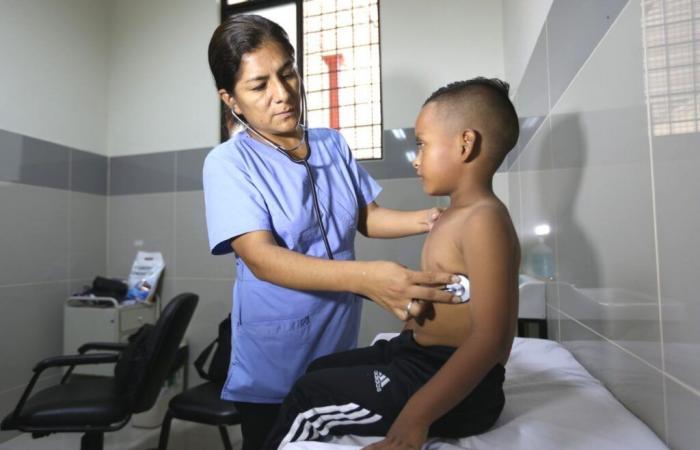Prevent your little one from getting sick by the change of weather! The Ministry of Health (MINSA) provides recommendations to face sudden changes in temperature. The common cold, flu, influenza, bronchiolitis and asthma are some of the respiratory diseases that usually appear more frequently.
strong winds, cloudy mornings and the persistence of solar brightness generate sudden temperature changes that can cause respiratory infections, especially in the smallest of the home.
The Chief of the Infectology Service of the National Institute of Health of the Child (INSN) Breña, Lenka Kolevic Roca, presented a list of the most frequent diseases in girls and boys due to climate variation. Knowing them is key to knowing how to act, minimize symptoms and avoid contagion:
-Common Resfracedo: Caused by virus. It is characterized by nasal secretion, sneezing, coughing and headache. It usually lasts between one and four days
-Gripe: It includes the symptoms of the common cold and is accompanied by high fever and muscle discomfort. Your recovery can take longer.
-Virus respiratorio sincitial (VRS): Very contagious. The infection can last from three to eight days, but in babies or immunosuppressed people the virus can be transmitted for weeks.
-Influenza: It can seriously affect children. Its symptoms include fever, headache, cough, throat pain and muscle aches.
-Bronchiolitis: It produces fever, lack of appetite, vomiting and diarrhea. Their symptoms tend to get worse in the first days and then progressively improve.
-Pneumonia: If after a cold the child presents high fever, cough with phlegm and difficulty breathing, it could be pneumonia. It requires immediate medical evaluation.
-Tuberculosis: It manifests itself with persistent dry cough (more than two weeks), fatigue, lack of appetite, weight loss, fever and nocturnal sweating.
Recommendations to prevent these diseases:
-Segure that they are vaccinated against influenza and other respiratory diseases. Vaccines play a crucial role in the prevention of serious infections.
-Avite expose children to sudden changes in temperature.
-Sech frequent hand washing: 80 % of viral diseases are transmitted by contact with contaminated surfaces.
-No take children to closed spaces with agglomerations.
-I immediately try the first respiratory symptoms (cough, fever, nasal secretion, throat pain).
-Sacious doctor if there is fever greater than 38 ° C or if the symptoms reappear after an apparent recovery.
-Consult with a specialist if there is persistent cough or difficulty sleeping.
-Do not send the sick child to school. If you need to attend, you must wear a mask.
-Sech to cover your mouth and nose when coughing or sneezing with the elbow or disposable scarf, which must be discarded immediately.
-Evite excessively harbor minors.
-Eiminate exposure to tobacco smoke.
-Mantner a balanced diet rich in vitamins and zinc. In infants, prioritize breastfeeding.
More in Andina:
Published: 4/27/2025






